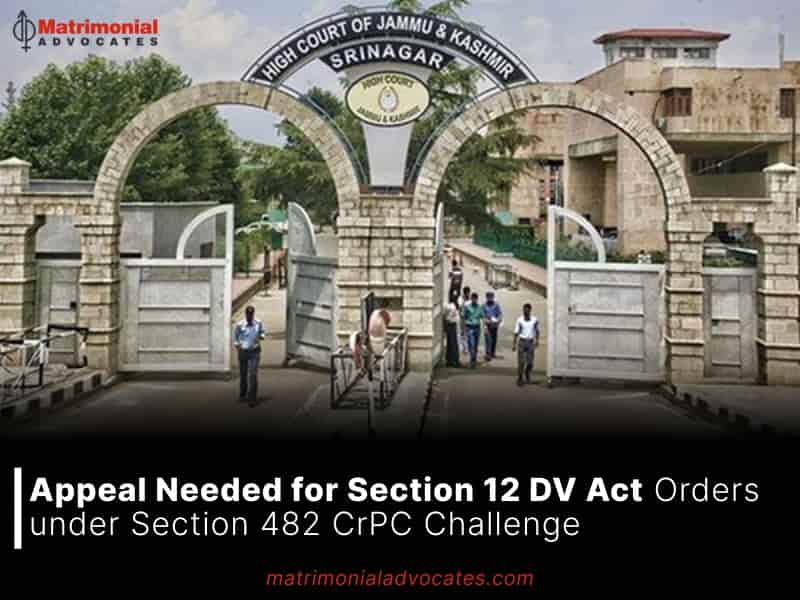
Justice Sanjay Dhar of the Jammu and Kashmir and Ladakh High Court has emphasized that challenging orders issued under Section 12 of the Protection of Women from Domestic Violence Act, 2005 (DV Act) through Section 482 of the Criminal Procedure Code (CrPC) is not allowed without first going through the statutory appeal process. In a recent case, a petition contesting the orders of a Judicial Magistrate under Section 12 of the DV Act was rejected.
“Without going into the question, whether or not the proceedings under the D.V.Act are of civil in nature, one thing is clear that the remedy of appeal is available to the petitioner against the impugned order. Without availing the said remedy the petitioner could not have rushed to this Court to file proceedings under Section 482 Cr.P.C or by invoking revisional powers of this Court”.
In this particular case, the petitioner initiated proceedings under the DV Act, seeking interim financial assistance and various reliefs, including shared housing. Initially, an ex-parte order was issued on August 17, 2022, directing the respondent to provide accommodation to Mrs. Balki. Subsequently, in response to the respondent’s challenge, the trial Magistrate modified the relief by either arranging rental accommodation or providing the petitioner with Rs. 10,000 per month. Dissatisfied with this alteration, the petitioner filed the current petition using Section 482 of the CrPC.
Opposing the petitioner’s request, the respondent initially raised an objection regarding the petition’s validity, contending that the order issued by the trial Magistrate falls within the category of appealable orders. Therefore, the petition under Section 482 of the Cr.P.C, in conjunction with Section 397 of the Cr.P.C, is not admissible. The legal counsel also argued that proceedings under the Domestic Violence Act (D.V. Act) are of a civil nature, making the Section 482 of the Cr.P.C petition unsuitable.
Justice Dhar, in delivering a decision on the matter, acknowledged that Section 29 of the DV Act explicitly permits an appeal to the Court of Session within 30 days from the date of the Magistrate’s order. This provision ensures the availability of a proper legal avenue for addressing grievances under the Act.
The court made an observation, stating that according to Section 29 of the Domestic Violence Act (D.V. Act), it is stipulated that an appeal can be filed with the Court of Session within 30 days after a Magistrate issues an order. Consequently, an order issued by a Magistrate under Section 12 of the D.V. Act can be subject to appeal under Section 29 of the same Act.
Hence, the court ruled that the petitioner’s recourse to the provisions of Section 482 and 397 of the Cr.P.C. to approach the High Court was not tenable without first exhausting the remedy of filing an appeal under Section 29 of the Domestic Violence (D.V.) Act. Consequently, the court dismissed the petitioner’s application.





